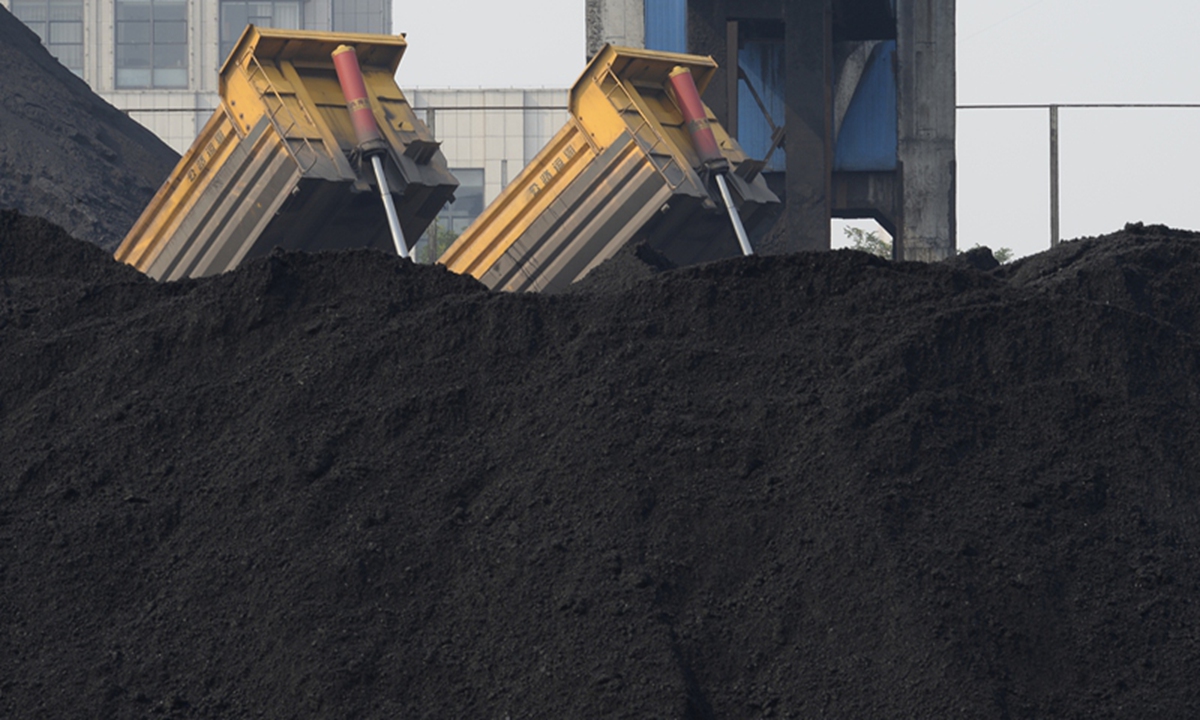Less coal import repudiation to Aussie political posturing
Source: Global Times Published: 2020/10/27 20:00:58

Photo: VCG
While China's carbon neutrality target has not yet had any impact on its coal trade with Australia, the fact that Mongolia has replaced Australia to become China's top source of coking coal suggests another blow is on the way for Australia's export-driven economy.In September, Mongolia shipped twice as much coking coal to China than Australia did, according to a report from industrial intelligence website metalbulletin.com.
The report also pointed out that China's coal imports from Australia came to a halt in early October - a development many Western media outlets interpreted as China's punitive measure against Australia amid rising political hostility between the two countries.
But industrial insiders say the rumored restriction on Australian coal imports may only be because the annual import quota for Australian coal has been reached through the sizeable purchases made earlier in the year.
Nevertheless, it is plausible for some in Australia to worry about the bleak outlook of the country's coal industry, especially since shrinking Chinese demand for the fossil fuel from Australia is likely to be a long-term trend.
China's vow to be carbon neutral by 2060 will see the country gradually replace fossil fuel with renewable energy, which is bound to reduce China's demand for coal. Of course, this is a goal that requires long-term effort, and in the short term, China's coal imports will remain sizeable.
Looking into geographic locations of China's sources of imported coal, Mongolia, Indonesia and Russia are all much closer to China than Australia. Take Mongolia for an example. The reason why Mongolia has overtaken Australia's position as China's biggest source of coking coal can be attributed to the launch of a China-Mongolia "green channel" at their border port in August, which facilitates more convenient transportation of Mongolian coal exports to China.
It is also widely expected that the completion of a railway line linking China and Mongolia next year will further facilitate the two countries' coal trade.
Meanwhile, increasing the supply of Mongolian coal may be seen as part of China's effort to seek greater import diversification. It is understandable that China would want to diversify the sources of its imports in order to reduce its dependence on supplies from unfriendly countries - for the sake of ensuring its own supply chain stability.
In fact, even before the China-Australia relationship hit its lowest point in decades, distrust in bilateral coal trade had crept in.
In early 2019, when Chinese customs found that Australian coal failed to meet certain environmental standards, the Australian side claimed stricter testing requirements were imposed specifically on Australian coal, disregarding the fact that China has the right to strengthen testing and inspection on the product to ensure it met quality and environmental standards that better protected the lawful rights and interests of Chinese enterprises and consumers, not to mention protecting China's ecological environment.
Against such a backdrop, it would be delusional to expect China and Australia coal trade to remain on a normal track.
A certain sense of urgency may well be felt by the Australian coal industry as the country apparently needs to diversify export destinations for its commodities. Australia may pin some hope on India and other Asian countries, but making up for the lost trade with China will be challenging.
Posted in: GT VOICE